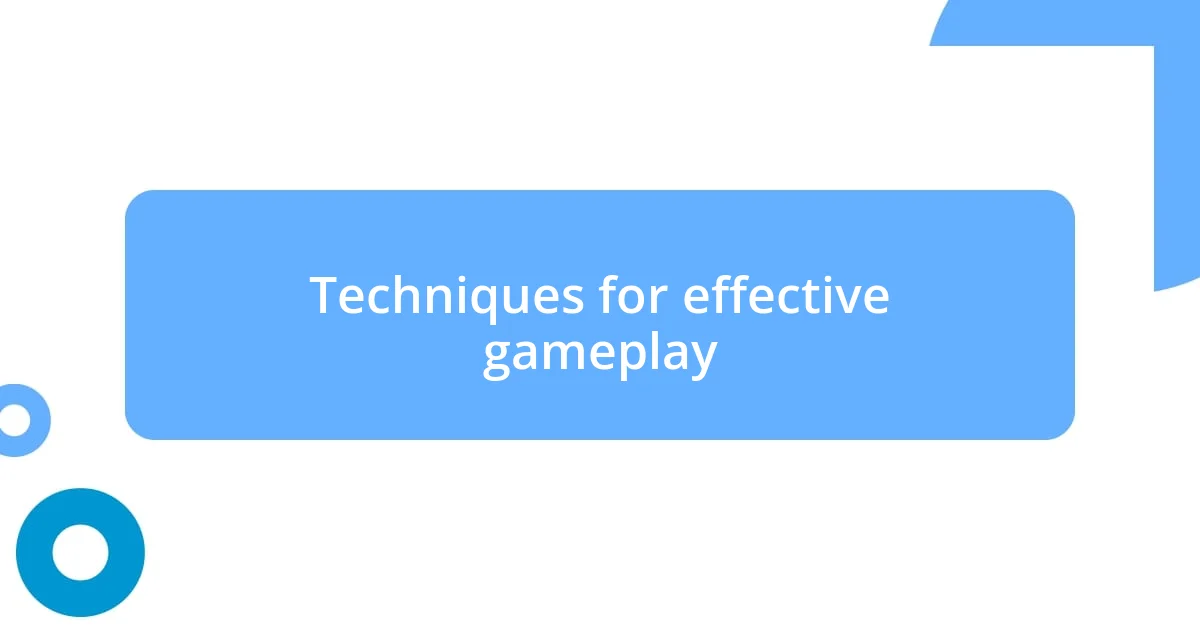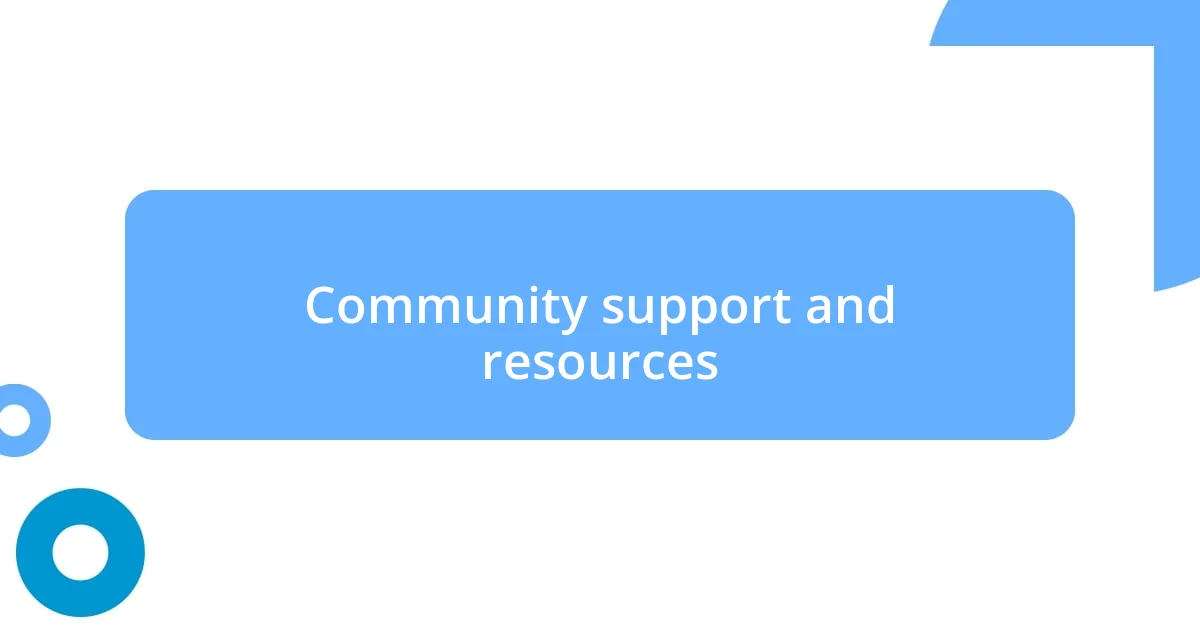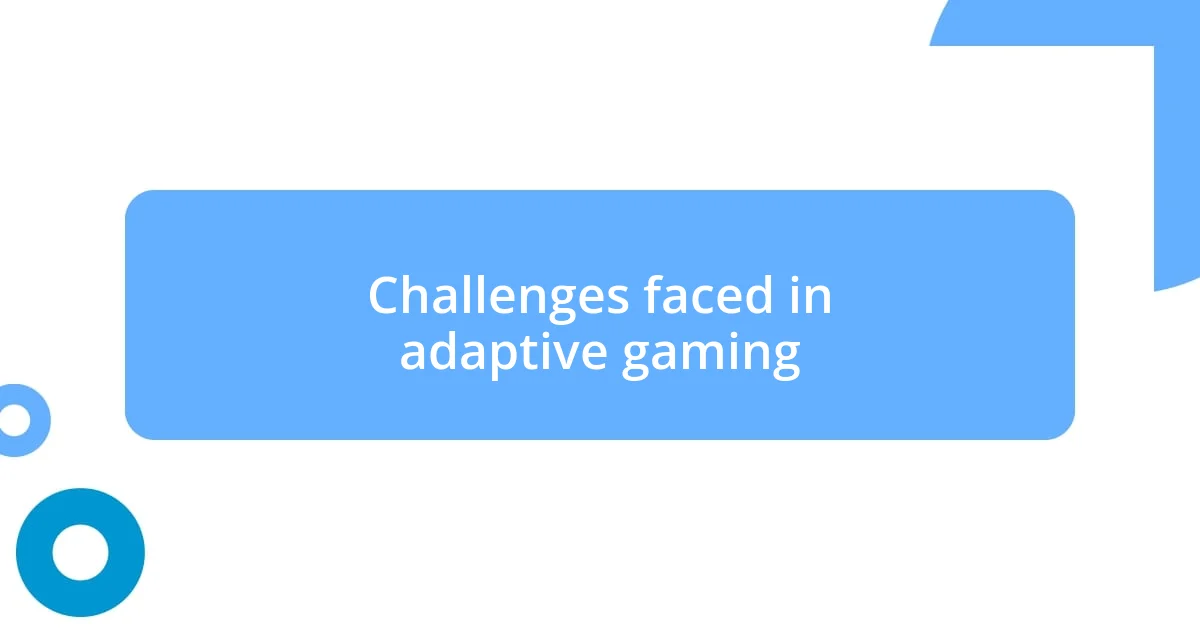Key takeaways:
- Adaptive gaming fosters a sense of community and emotional support among players, enhancing engagement and motivation through shared experiences and collaboration.
- Investing in specialized tools, such as adaptive controllers and voice recognition software, transforms gameplay by accommodating individual needs and enhancing interaction with games.
- Future innovations, including advancements in haptic feedback and artificial intelligence, promise to further improve accessibility and customization in gaming, making it more inclusive for all players.

Understanding adaptive gaming benefits
Adaptive gaming offers a unique way to level the playing field for all players, regardless of their individual challenges. I remember vividly the first time I experienced an adaptive gaming setup; it was like stepping into a whole new world. Suddenly, I could navigate complex games with ease, thanks to customized controls that perfectly matched my abilities.
One of the most profound benefits I’ve noticed is how adaptive gaming enhances engagement and motivation. Think about it—when was the last time you felt truly excited to play a game? By tailoring experiences to individual needs, adaptive gaming not only boosts confidence but also encourages players to push their limits. I often find myself more invested in the storyline when I can interact in a way that feels natural for me.
Additionally, adaptive gaming has evolved into a fantastic community-building tool. I’ve met incredible people through online platforms that celebrate our unique gaming experiences. Isn’t it amazing how shared challenges can foster friendships and collaboration? The emotional bonds formed through these interactions have enriched my gaming journey beyond mere entertainment, turning it into a support system where we cheer each other on.

My journey with adaptive gaming
Adaptive gaming has been a remarkable aspect of my personal journey. I still remember the thrill of using a specialized controller that connected with my skills, allowing me to tackle challenges I never thought possible. This transformative experience highlighted how adaptive technology could truly cater to my unique way of interacting with games, igniting a passion that only deepened with time.
I often reflect on how adaptive gaming has not just changed my gameplay but also reshaped my understanding of community. One memorable evening, I joined an online session with other gamers who faced similar challenges. Sharing strategies and laughing about our experiences created an instant bond. It felt fantastic to be part of a collective journey, where every triumph felt amplified by the cheers of friends I hadn’t met yet in person but felt connected to nonetheless.
The emotional highs and lows are what keep me coming back for more. There are days when I struggle, and games seem impossibly tough; however, the triumph of finally conquering a level feels particularly rewarding. It’s as if every challenge is a mini mountain, and the summit isn’t just about winning but also about sharing those moments with others who understand the journey.
| Experience | Impact |
|---|---|
| Using a customized controller | Enhanced skill engagement |
| Participating in online sessions | Built a supportive community |
| Overcoming gameplay challenges | Boosted emotional resilience |

Tools that enhance my experience
Tools play a crucial role in enriching my adaptive gaming experience. I’ve found that investing in the right gear can completely transform the way I interact with games. A prime example would be my current use of a special adaptive joystick. It not only fits comfortably in my hand but allows me to execute complex maneuvers that were once daunting.
Here are some tools that have genuinely enhanced my gaming sessions:
- Adaptive Controllers: Designed to suit individual needs, these help me enjoy a wider range of games effortlessly.
- Voice Recognition Software: Using voice commands brings a whole new level to gameplay and makes navigation a breeze.
- Customizable Key Mappings: I love being able to set up my controls in a way that feels natural, making my gaming experience smoother and more intuitive.
- Accessible Game Settings: Many games now include options to adjust difficulty and assistive features, which helps me tailor my experience to what suits me best.
- Gaming Headsets with Audio Cues: These allow me to hear critical in-game sounds that enhance my situational awareness and overall immersion.
Each tool has its own story; like the time my voice recognition software saved me when my hands were too tired to continue. I simply called out commands, and the game accommodated me effortlessly. That moment reminded me of the beauty of technology in breaking barriers, allowing me to continue enjoying what I love most.

Techniques for effective gameplay
One powerful technique I’ve found for effective gameplay is taking regular breaks. I can’t tell you how many times I’ve pushed myself through a long session, only to find that my focus starts to wane. Stepping away for just a few minutes not only refreshes my mind but often leads to clearer strategies when I return. Have you ever noticed how a quick walk or even a simple stretch can invigorate your gameplay? It’s like recharging a battery; my performance dramatically improves after those short respites.
Another technique that has served me well is to embrace the concept of ‘trial and error.’ Each time I face a challenging level, I remind myself that failure is just a stepping stone to success. I vividly remember a difficult boss battle where I kept getting overwhelmed. Instead of getting frustrated, I shifted my mindset to view each defeat as a lesson, analyzing what went wrong. This approach not only made the experience more enjoyable but also deepened my understanding of in-game mechanics.
Lastly, I highly recommend creating a supportive environment tailored to your preferences. I’ve found that adjusting my setup—like dimming the lights or using calming background music—helps me focus better. When I feel comfortable and relaxed, my gameplay becomes more enjoyable and effective. Have you ever experimented with your gaming environment? It can be surprising how such a simple adjustment can significantly enhance your overall experience!

Community support and resources
Community support has been a cornerstone of my adaptive gaming journey. Whether it’s through forums, social media groups, or local meetups, connecting with other gamers has been invaluable. I remember joining an online community where members shared their experiences and tips on adaptive technologies; it felt like I found my tribe, and their insights really helped me shape my own gaming setup.
Resources available through these communities are often life-saving. For instance, I once stumbled upon a discussion outlining free software tools designed for accessibility, which ultimately changed how I navigated my favorite game. It’s these shared resources that not only empower me but also foster an environment of collective growth—I mean, who wouldn’t want to tap into that wealth of knowledge?
What truly stands out is the emotional support provided by fellow gamers. I once participated in a live stream where viewers offered encouragement as I attempted a tricky level. That experience made me realize how much more rewarding gaming can be when there’s a sense of camaraderie. Isn’t it amazing how a few words of support can transform your experience? It’s evident to me that community connections augment not just my skills but my love for gaming itself.

Challenges faced in adaptive gaming
Adaptive gaming is not without its challenges. One significant hurdle I’ve encountered is the steep learning curve associated with new technologies. I remember eagerly trying out a new adaptive controller, only to spend hours figuring out how to customize the settings to suit my preferences. It was frustrating at first, but then I realized that overcoming this learning curve would ultimately enhance my gaming experience. Have you faced a similar situation where technology felt daunting at first, only to become second nature?
Another challenge I often grapple with is the lone feeling that can seep in when you lack local community support. I recall playing a multiplayer game where I struggled to coordinate with teammates due to different communication styles and play modes. It made me appreciate just how vital effective communication is in any gaming setting. How do we bridge that gap between different preferences and styles to create a collaborative gaming atmosphere?
Lastly, there are accessibility barriers that persist in many games. For example, I once played a visually stunning title that had poor color contrast and small text, making it nearly impossible for me to enjoy. It was disheartening to see a game with such potential fall short due to oversights in accessibility. This brings to mind the essential question—how can developers better prioritize inclusivity in their designs? Addressing these issues not only opens the doors for more gamers but enriches the gaming landscape for everyone.

Looking ahead to future innovations
The horizon of adaptive gaming is rich with possibilities that excite me. Innovations in haptic feedback, for instance, could transform the gaming experience for individuals with varying sensory preferences. I vividly recall my excitement upon testing a prototype that vibrated differently based on in-game actions, making each moment feel more immersive. How cool would it be if every game could tailor such experiences to individual needs?
Looking further ahead, artificial intelligence seems poised to play a monumental role. Imagine AI-driven companions that adapt to a player’s skill level and communication style, enhancing teamwork and making gameplay smoother. The thought of an AI adjusting to my gaming pace in real time sparks so many ideas. Have you ever wished for a sidekick who truly understood your playstyle?
Moreover, I believe that cloud gaming services could bring unparalleled accessibility to adaptive gaming. This could mean lesser reliance on specific hardware configurations, allowing more people to participate. It reminds me of how freeing it felt to try a game I once thought impossible without the right console. Just think, what if we could seamlessly access our favorite adaptive titles across devices without barriers? That’s a future I can’t wait to see unfold!














